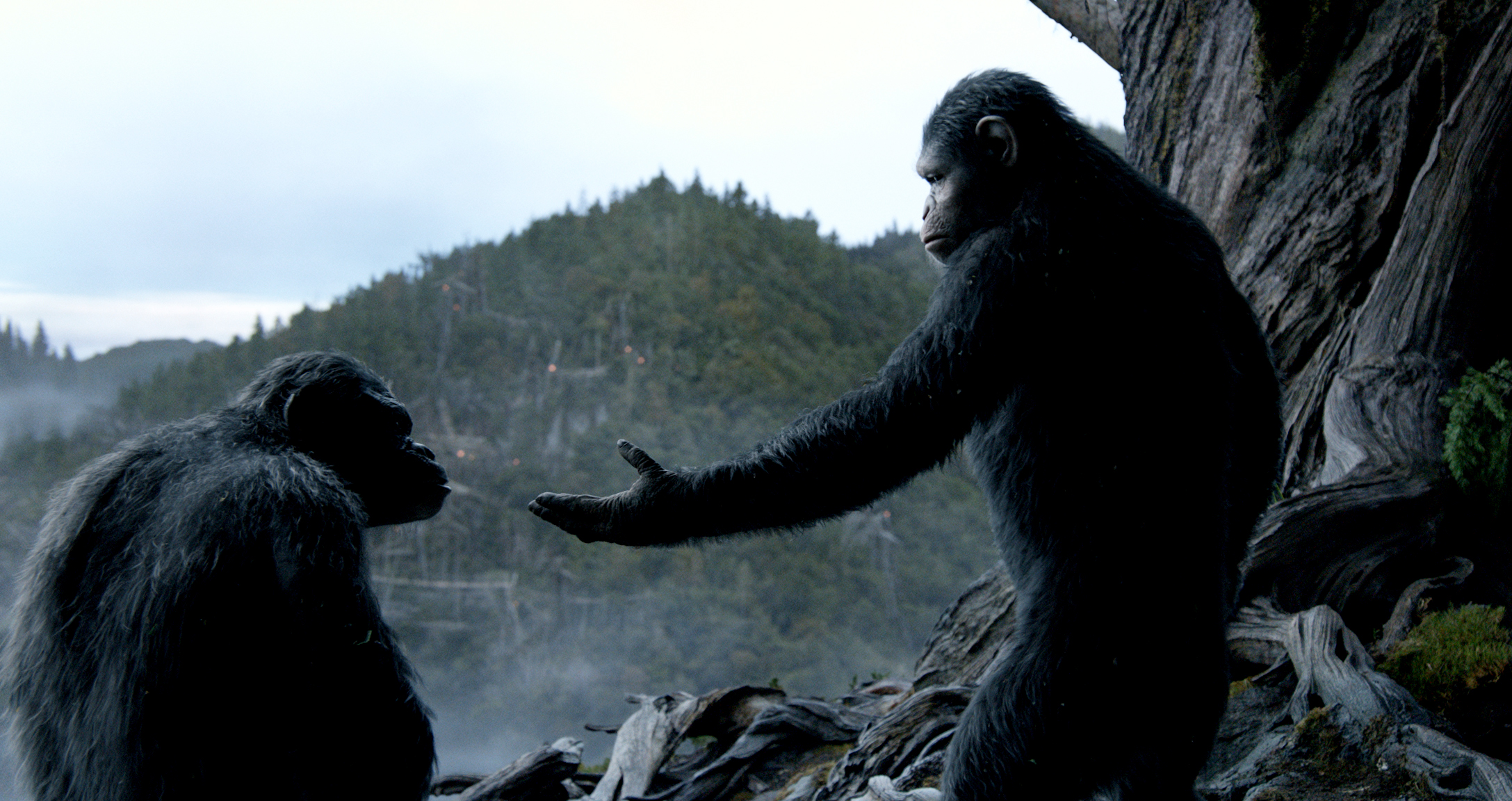REVIEW: 'Dawn of the Planet of the Apes'
In the broadest terms, science fiction is a movie genre where anything can happen. It’s free from the boundaries that define other films like dramas, thrillers or even comedies. In sci-fi, filmmakers are allowed to depict whatever flights of fancy they can conceive, and that freedom has led to some of the most cinematic motion pictures in the history of the medium.
But what makes a good science fiction film is, naturally, a bit more complicated. Arguably one of the most essential pieces, though, is whether or not the film can use its creative liberty to depict an exaggerated version of a real-world problem. By taking an issue like racism or war, and helping the audience understand the concept through the lens of an otherworldly story, sci-fi films can simultaneously be more instructive and entertaining than even the most self-righteous Oscar contender.
While today’s audiences may not realize it, the original Planet of the Apes from 1968 did just that. Once you look past the (still) brilliant makeup and the famous lines delivered by Charlton Heston, there’s a startlingly poignant commentary at the film’s core. To varying degrees of success, the later films in the series continued that mission, tackling everything from nuclear weapons tension, the segregation of black Americans, and the Vietnam War. And all the while, it’s delivered in the form of a film series about talking apes who come to dominate Earth.
Now the series continues in the form of Dawn of the Planet of the Apes, the sequel to 2011’s invigorating reboot of the franchise, Rise of the Planet of the Apes. Unlike other films in the series, however, Dawn lays down some important ground rules. Firstly, it dispenses with the cheeky references to earlier films (one of the few weak points of Rise, and a critical flaw of Tim Burton’s forgettable 2001 reboot). Secondly, the new film leaps off into the world established at the end of Rise, and isn’t afraid to do what sci-fi films do best: weaving together intellectual questions with summer thrills.
We pick up the story ten years after the events of the earlier film. A viral infection (designed to cure Alzheimer’s, but deadly to most humans) has ravaged the globe. The virus is also same compound responsible for creating a race of super-intelligent apes, the descendants of the original test subjects of the Alzheimer’s drug.
The apes are led by Caesar (Andy Serkis), who promotes their peaceful existence in the forest outside San Francisco, where a colony of human survivors is clinging to life. Despite Caesar’s best efforts, the humans and the apes come to blows, and it’s up to a human family (played by Jason Clarke, Keri Russell and Kodi Smit-McPhee) to try and mediate the conflict and avoid an all-out war.
There’s a reason why I mentioned Caesar first – even though earlier films in the series have humans as the lead characters, Caesar is the unequivocal centre of Dawn. This is an older version of the character, hardened by years in command. Caesar’s now trying to show his teenage son how to lead, while fending off the challenges by his hate-filled second-in-command, Koba (Toby Kebbell). More importantly, the motion-capture performances and digital animation that bring all this to the screen are so strong, the technical artifice of the film melts away. You’re left with a digital cast that’s just as easy to relate to as the flesh-and-blood one.
The filmmakers don’t slouch with the humans, either. Clarke and Russell are kind of fascinating as two people desperately trying to make the best decisions in an impossible situation. Gary Oldman pops up as a human antagonist, and (rather wisely) decides to keep the character restrained and grounded. Later, director Matt Reeves (Cloverfield, Let Me In) crafts a clever scene that parallels a confrontation between Oldman and Clarke’s characters with a tense showdown between Caesar and Koba, the latter of which turns out to be one of the best action sequences I’ve seen so far this summer.
The action and drama play out with some truly powerful visuals. Reeves avoids shots of mass destruction, instead favouring Life After People-style scenery, with vegetation and urban decay taking over San Francisco infrastructure. And Reeves even allows himself a few other notable cinematography delights. My favourite of these was a shot from the perspective of a turret on an out-of-control armoured vehicle: as it swings around haphazardly, we take in the chaos around us, witnessing humanity’s collapse from the vantage point of inanimate military might.
The film closes out with a suggestion of how Caesar might be elevated to an almost religious figure by his people, yet another suggestion that the Apes series hasn’t run out of ideas to explore. It’s hard to adequately describe how refreshing it is to see a franchise like Planet of the Apes raise itself up (after lacklustre entries like 1973’s Battle of the Planet of the Apes and Burton’s film) to a renewed significance in the 2010s, but suffice it to say that I’m already looking forward to more intelligent, heart-pumping Apes films in the future. Dawn of the Planet of the Apes gets four stars out of four.
What did you think of the latest Apes film? Is it steadily reclaiming the legacy of the earlier films, or it is just too ridiculous for you? Were you creeped out by the digital apes? Join the discussion in the comments section, and if you liked this review, share it with your friends and followers!




